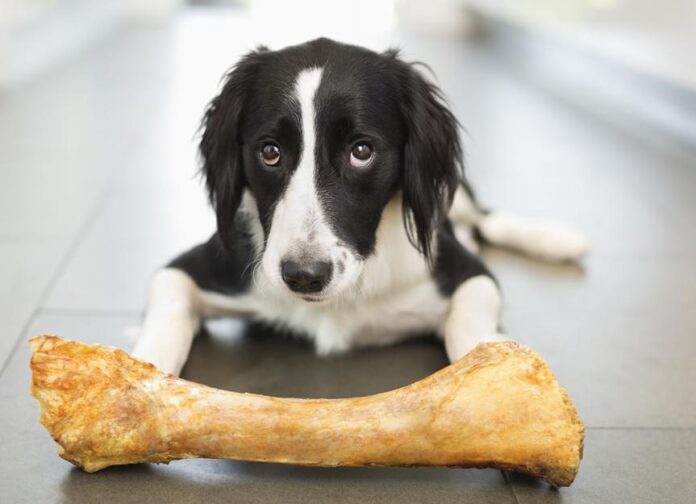Can Dogs Safely Eat Bones? An In-Depth Look
As pet owners, it’s natural to want to treat our furry friends to tasty snacks. However, should you consider giving your dog bones as a treat? The simple answer is no. While popular culture often depicts dogs joyfully feasting on bones, in reality, offering bones can pose serious health risks.
Understanding Bone Risks for Dogs
Veterinary experts strongly advise against giving any type of bone to dogs, whether cooked or raw. Here’s why:
- Cooked Bones: These bones are particularly dangerous as they can easily splinter. When cooked, bones can break into small shards that pose choking hazards and can pierce a dog’s digestive tract.
- Small Bones: Smaller bones increase the likelihood of choking, making them particularly risky for your pet.
- Round Bones: These types can obstruct a dog’s windpipe or jaw, often requiring emergency veterinary intervention for removal.
Why Bones Are Harmful to Dogs
While bones themselves aren’t toxic, they carry significant hazards:
- Choking Hazard: Bones can get lodged in the esophagus, leading to choking incidents or serious injuries.
- Intestinal Damage: Sharp fragments can cause severe perforations in the intestinal tract, and bones can also result in blockages.
- Dental Issues: Chewing on hard bones can lead to dental trauma, including chipped or fractured teeth.
- Foodborne Illness: Raw bones may contain harmful bacteria; if meat is still attached, it presents a risk for both dogs and their human families.
Are Bones Beneficial for Dogs?
Though bones might provide some nutritional value, including protein, calcium, and collagen, the potential risks far outweigh these benefits. The chances of serious injury or health complications make bones an unsafe option for your dog.
Safe Alternatives to Bones for Your Dog
For dogs that enjoy chewing, consider offering dental chews instead. These are specifically designed to promote oral health while keeping your dog entertained. Ensure that any product you select carries the Veterinary Oral Health Council (VOHC) seal, indicating its safety and effectiveness.
Just remember to supervise your dog during chewing sessions and remove the chew if it begins to break apart or presents any risks of choking. If you suspect your dog has swallowed a large piece, seek veterinary assistance immediately as this can develop into an emergency.
Frequently Asked Questions About Dogs and Bones
Can dogs eat chicken bones?
No, chicken bones are particularly hazardous due to their hollow structure, making them prone to splinter easily and cause severe injury, including internal bleeding or infections.
Can dogs eat pork bones?
No, like chicken bones, both cooked and raw pork bones can splinter or harbor bacteria, posing significant health risks to dogs.
Can dogs eat rib bones?
No, rib bones—as with all types—can splinter easily, leading to choking or internal injuries.
Can dogs eat turkey bones?
No, both cooked and raw turkey bones can break and splinter, causing choking or intestinal blockages.
In conclusion, keeping your dog safe means avoiding bones entirely and opting for specially formulated dental chews. Always consult your veterinarian when considering new treats for your pet.











